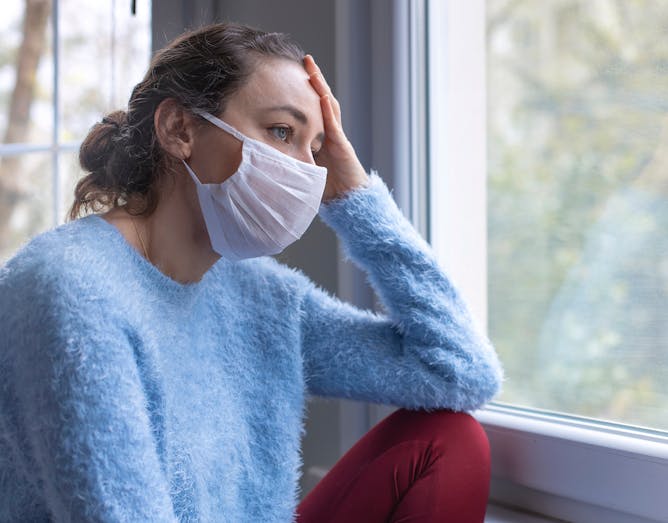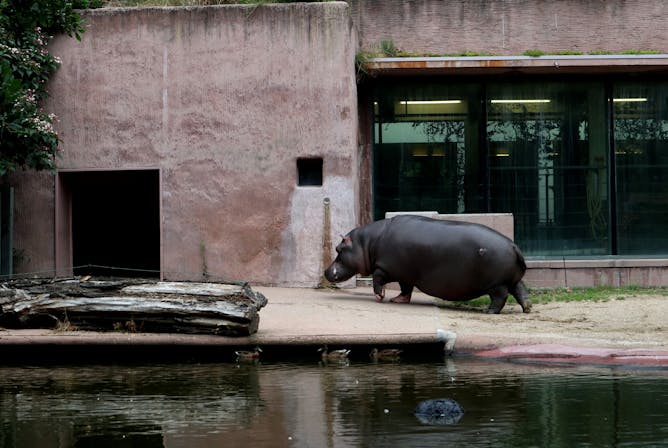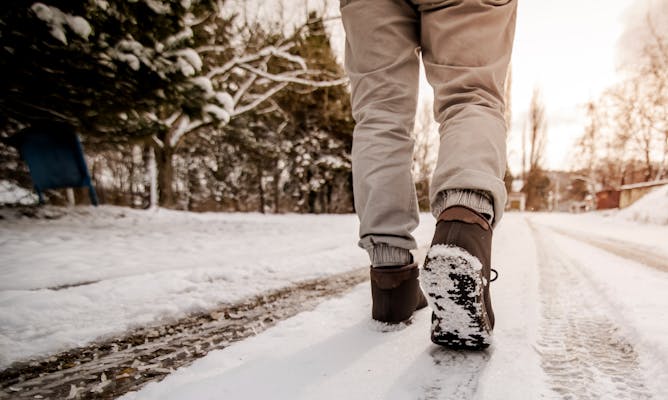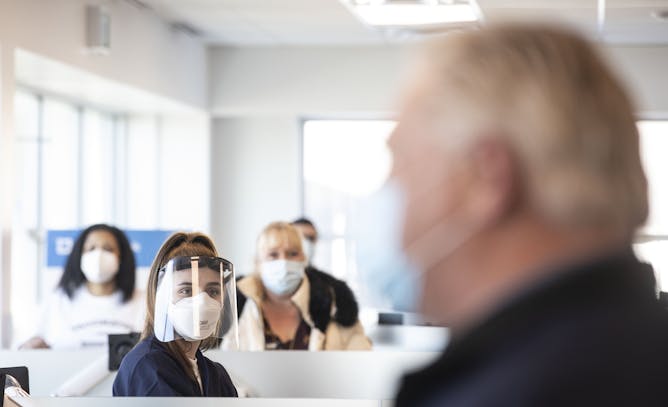|
|
|
|
People with long COVID, or post-COVID condition, have ongoing symptoms that can range from chest pain, trouble breathing and fatigue, to brain “fog,” loss of smell or taste, anxiety and depression — long after their COVID-19 infection has cleared. Almost two years into the pandemic, most questions about these “long-haulers” remain unanswered: Why do about one in 10 COVID-19 patients exhibit ongoing symptoms? What causes it? Why is it more severe than other post-viral syndromes?
Today in The Conversation Canada, Manali Mukherjee and Zain Chagla of McMaster University write about what’s known about long COVID, and what isn’t. “One theory we and our colleagues are exploring through research is that COVID-19 triggers such a powerful immune response that it may not be the virus that is directly responsible for long COVID, but our bodies’ response to it.”
Also today:
|

|
Patricia Nicholson
Health + Medicine Editor
|
|

Long COVID appears to affect about one in 10 people who have recovered from a COVID-19 infection.
(Shutterstock)
Manali Mukherjee, McMaster University; Zain Chagla, McMaster University
Not much is known about “long COVID,” including who, when or how badly it will strike, how long it might take to recover, or whether complete recovery is possible for all.
|

A hippopotamus heads back into its enclosure at the Antwerp Zoo.
(Shutterstock)
Beth Daly, University of Windsor
COVID-19 has been found in wild, captive and domesticated animals. To understand and combat the disease, a One Health approach that considers human, animal and environmental factors is essential.
|

Choose an activity you like, and then do that activity for as many consecutive days as you can.
(Shutterstock)
Astrid H. Kendrick, University of Calgary
Workplaces, in addition to providing critical organizational resources, can encourage employees to undertake a voluntary workplace well-being streak, or employees can commit to their own.
|

A health-care worker and volunteers watch as Ontario Premier Doug Ford visits a vaccine clinic for Purolator employees and their families at the company’s plant in Toronto.
THE CANADIAN PRESS/Chris Young
David Weitzner, York University, Canada
Our society has never explicitly debated whether the health-care industry is more important than other critical sectors, like education, as governments impose lockdowns.
|

Jean-Marc Vallée attends a press conference to promote the film ‘Demolition’ at the Toronto International Film Festival in September 2015. His unfinished work was an ode to human complexity.
THE CANADIAN PRESS/Chris Young
Anne-Sophie Gravel, Université Laval
If Vallée’s films are so moving, it is because for him, cinema and television are an act of communication. He said he hoped his stories would “give back a little.”
|

Today, teens are often seen as troublesome and difficult. Ancient Roman writers also described adolescence as a period of “hooliganism and debauchery.”
(Shutterstock)
Creighton Avery, McMaster University
Teens across millennia have yearned to explore, try new things and participate in risky behaviours. The key difference, however, seems to be the experience of a rebellion or restlessness.
|
La Conversation Canada
|

Julien Bureau, Université Laval; Frédéric Guay, Université Laval
Il importe d’écouter les besoins et les idées des étudiants et de leur permettre une participation active afin qu’ils développent un bon sentiment de compétence et une motivation scolaire de qualité.
|
COVID-19
|
-
Trish Greenhalgh, University of Oxford; Jose-Luis Jimenez, University of Colorado Boulder; Shelly Miller, University of Colorado Boulder; Zhe Peng, University of Colorado Boulder
To discover your risk of catching coronavirus for any given situation, try our COVID-19 Aerosol Transmission Estimator.
|
|
Politics
|
-
Pierre-Yves Modicom, Université Bordeaux Montaigne
You can only properly translate French scatological swear words if you consider who is using them. In this case, the most powerful person in France.
|
|
Science + Tech
|
-
Rowan O. Martin, University of Cape Town; Amy Hinsley, University of Oxford; Ana Nuno, Nova School of Business and Economics
Social media platforms have enabled wildlife traders to connect as never before. Some operate legally, within the boundaries of international laws. Others are less scrupulous.
|
|
| |
| |
| |
| |
|
|
|
|
|
|
|